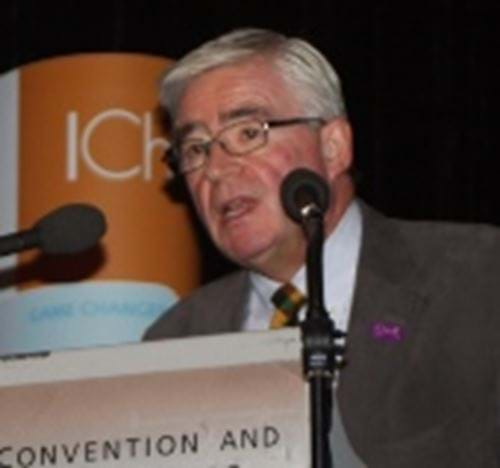Chemeca 2014 highlights
7th October 2014

Chemical engineers from the Asia Pacific region addressed some of the big issues facing humanity at Chemeca 2014, including a strong focus on solutions to the sustainable energy challenge.
Chemeca 2014 is the annual three-day conference for Australasia’s community of chemical and process engineers and industrial chemists, held in Perth, Western Australia.
IChemE president and Imperial College London’s professor Geoff Maitland, highlighted in his opening address IChemE’s Chemical Engineering Matters (CEM) initiative and how it provides a neat summary of the broad scope of chemical engineering in the 21st Century.
“We all fit into this matrix somewhere and I encourage you to read the report and ask the question - where do I fit in?”
Maintland’s opening address dovetailed with a workshop and panel discussion on Chemical Engineering Matters – the nexus between energy and water challenges. These two challenge areas were rated as the most important to chemical engineers in our region.
A panel represented by industry, utilities and academia joined Maitland in providing the audience with an overview of what was being achieved in Western Australia to address its water and energy challenges. This was followed by a Q &A session providing the opportunity for an interactive discussion on how to tackle these issues.
Maitland advised that when exploring a low carbon fossil fuels future, chemical engineers can provide an integrated systems and optimisation approach across the energy-water landscape: “Better lifecycle assessments in terms of water and energy use.”
“A stronger focus on process and product efficiency – creating more from less, needs to be considered for both energy and water.”
“Efficiency improvements through water switching, re-using and recycling, have the potential to improve water efficiency in the energy sector.”
Some points raised by the audience included the need for a stronger emphasis on sustainability in student design project challenges; engaging the public so that government will follow; and the need to make sustainability easier for the consumer through smarter systems.
Perth was the first stop of Maitland’s national tour that will see him take this CEM workshop to Melbourne, Brisbane and Darwin.
Another common theme arising from the many topics covered at the event was the importance of collaborations between industry/society and universities.
Plenary and keynote speakers including, Chevron’s Richard Hinkley, BP Kwinana’s Michael Glenny and Homi Bhabha National Institute Mumbai professor J B Joshi, all highlighted that collaboration and working collectively with partners is vital for project success.
All emphasised the importance industry and university partnerships provide, offering win-win benefits to both. For industry, the collaboration provides access to chemical engineering expertise that can help solve real-life challenges.
For universities, the arrangement helps to advance university research and development programmes. This can be through scholarship opportunities, PhD programmes, professorial endowments and funding to build new chemical engineering university facilities.
Joshi’s presentation on ‘Wealth generation through university and industry partnerships’, talked about a project close to his heart - philanthropy, done through chemical engineering.
Joshi shared his partnership experience between the Indian government and the Institute of Chemical Technology University.
“The aim of the project was to develop an oven to feed over 110 million of India’s underprivileged children.
“This challenge saw the University’s energy group create a novel biomass stove that has the energy efficiency of 35 to 40% compared with 10 to 15% for conventional designs.”
“Just one cooker can serve over 100,000 meals per hour.”
“The principle behind these collaborations is wealth generation. This then has a flow on effect that benefits society through job creation, increased profits, taxes etc.”
Professor J B Joshi, is known for his innovations in nuclear reactor designs, and for using chemical engineering for practical applications. His body of work has seen him be awarded one of the highest recognitions from India’s government, the Padma Bhushan 2014.
Other notable presentations were on gas hydrates from professor Carolyn A Koh from the Colorado School of Mines. Koh and her team have been researching how to solve the problems gas hydrates cause within the deep-sea oil and gas industries. Her talk also touched on the more recent discovery and benefits of using gas hydrates as an alternative energy storage medium.
Professor Lynn Gladden from the University of Cambridge spoke in detail about her magnetic resonance research work and how closing the knowledge gap can make a difference in process performance.
The much anticipated Awards for Excellence in Chemical Engineering was also a Chemeca highpoint, with over 10 major awards handed out during the ceremony. The most prestigious award for the night was The Chemeca Medal, and was awarded to the Dean of Engineering at Monash University, professor Tam Sridhar.
Chemeca is hosted by the Australian and New Zealand Federation of Chemical Engineers (ANZFChE) comprising the Royal Australian Chemical Institute (RACI), the Institution of Chemical Engineers (IChemE), Engineers Australia (EA) and the Institution of Professional Engineers New Zealand (IPENZ).